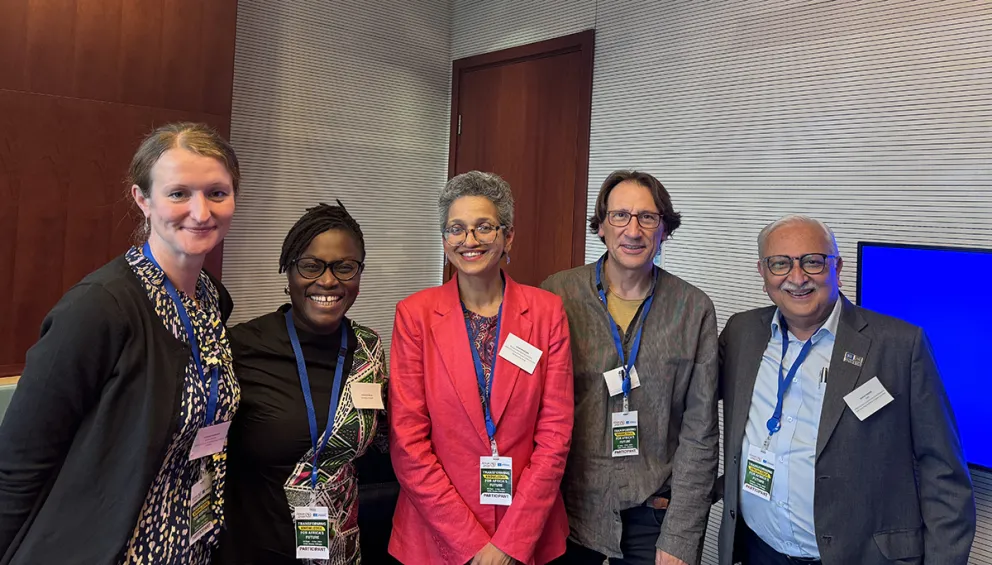Transforming Knowledge for Africa's Future
The UNESCO Chair in Science Communication for the Public Good recently participated in an international forum organized by the African Union Commission and UNESCO, focusing on “Transforming Knowledge for Africa’s Future.”
As the website details:
"The future of humanity is inextricably linked to Africa’s future. Yet, established narratives around the future of the continent continue to reflect the long-standing imbalances in knowledge production and in academic research on Africa. Research remains largely dominated by institutions in, or with close links to, the Global North. Reframing the narrative around Africa’s future requires the mobilization of diverse knowledge traditions."
We aspire that by 2063, Africa shall be a prosperous continent, with the means and resources to drive its own development… and where… well educated and skilled citizens, underpinned by science, technology and innovation for a knowledge society is the norm”

During the forum, the UNESCO Chair holder Professor Sujatha Raman, convened a panel discussion titled “How Can Open Science Foster the Transformation of Knowledge Necessary to Meet Societal Needs?”.
Additionally, Professor Raman, was a panellist in discussions about the International Decade of Sciences for Sustainable Development, highlighting the importance of African agencies in driving the agenda surrounding these critical issues.
The event brought together participants, including stakeholders in academics and civil society from across the globe Netherlands, Uganda, Ghana, Nigeria, Australia, Tanzania, South Africa, Mexico, Brazil, Austria and India whose work resonates with open science.
Among the main themes and takeaways from the event, UNESCO Chair in Science Communication member and events Rapporteur Rita Agha noted the necessity to scrutinise existing and emerging infrastructures to ensure they support UNESCO’s values, such as equity, inclusion, and diversity.
She also mentioned the takeaway of how open research should be bidirectional, facilitating community-led and community-responsive knowledge creation.
Moderator
Sujatha Raman (Australian National University)
Panellists (UNESCO Chair Collaborators)
Ismael Rafols - (CWTS Leiden University)
Louise Bezuidenhout (CWTS, Leiden University)
Rajesh Tandon - UNESCO Chair on Community based research and social responsibility.
Temilade Sesan (University of Ibadan)
Rapporteur : Rita Agha
